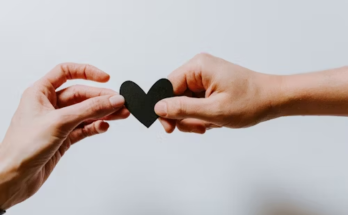Minimalism is a lifestyle movement encouraging people to live more simply and focus on what matters. The movement has taken the form of professional minimalism consultants and apps dedicated to minimalism.
Studies have demonstrated that minimalists can significantly lower their carbon footprint by prolonging clothing lifespan, downsizing living spaces, sharing and repairing appliances, and sharing income to offset consumption costs. However, mainstreaming this low-consumption lifestyle remains difficult.
Minimalism is a way of life.
Minimalism is an approach to life that emphasizes owning only what you need and prioritizing what matters over things that might clutter or distract, leading to happier, more satisfying lives as a result of saving both time and money through minimalism. Furthermore, minimalism may reduce stress levels as well as improve health.

Minimalists live within their means while spending more time doing meaningful activities. This lifestyle has gained in popularity in the U.S. as more individuals search for more straightforward living solutions; however, minimalism should not be taken as a one-size-fits-all solution but seen as something unique for each person on their journey towards simplicity.
People often misunderstand minimalist living, believing it means living with only minimal possessions and technology. Their beliefs may have been formed from images of minimalist homes seen in magazines or on social media; although these homes may look beautiful, they do not represent true minimalism. Minimalism involves finding what brings happiness while getting rid of anything unnecessary—it is not about owning certain numbers of items or forgoing technology altogether.
The worst forms of minimalism mislead by treating simplicity not as an end but as an instrument for high-end consumption and failing to acknowledge that any genuine solution lies within systems rather than individual bedrooms.
Although minimalism offers numerous advantages, it should also be remembered that adopting its lifestyle can be challenging. Parting ways with items you no longer use may be emotionally trying, particularly if they have become part of your everyday life – especially those with children.
No matter your current state of minimalism practice, there is always room for growth. Although mastering minimalism takes time and practice, its rewards make the journey worthwhile: helping to focus on what matters while living an enriching and fulfilling life is only achieved through minimalism.
Technology is a tool.
The minimalism of the future will not involve getting rid of stuff so much as reducing distractions. Instead of depending on a massive desktop calendar with scratches-out edits or a shoebox containing photos as your primary way of tracking appointments and events, your smartphone may become your primary tool for keeping tabs. Your keyboard could give way for wireless mouse and trackpad use instead, or virtual reality could become your new reality home altogether.
Experts caution that minimalism does not rely solely on personal technology; experts warn it should be treated as just another tool with positive and negative outcomes. Most successful minimalists stress this point while noting they do not oppose capitalism or advocate communism but embrace another way of living. Many successful minimalists suggest their readers reevaluate both work and home environments to find more efficient and productive ways without increasing wages or monetary salaries. In addition, minimalism helps people declutter possessions while discovering which items bring joy into their homes.
Japanese consultant Marie Kondo’s 2014 book The Life-Changing Magic of Tidying Up became an international bestseller. In it, she encouraged readers to determine whether every item in their home “sparks joy.” If not, they must go. Fortin and her colleagues assist clients in doing the same with their technology devices by encouraging them to get rid of any that no longer serve a purpose and suggesting ways to use technology more efficiently and effectively.
Some minimalists advocate a minimalist approach to home design, advocating smaller apartments or van living, along with home automation technologies designed to reduce clutter and simplify our daily lives. They also recommend creating a capsule wardrobe from essential staples (Cladwell will help with that) using Unclutterer and eliminating clothes you never use yourself.
Minimalism is a way of thinking.
Minimalism is not simply an accumulation of items; it is an approach to life that entails identifying what clothing, decor, hobbies, tools, and activities bring them the greatest happiness while discarding those that do not add any tangible benefit to daily living. Minimalism’s approach varies for each person based on what brings them joy; therefore, minimalism does not equate with owning fewer things – contrary to popular misconceptions. Many prominent minimalists such as Leo Babauta from Zen Habits; Joshua Becker with his career and family; Colin Wright, who owns 51 items; Tammy Strobel, living with her tiny home and car-free lifestyle, among many others, are examples of minimalists living entire lives while minimalism takes its approach in practice.
Minimalists live worldwide, in everything from remote cabins in the woods to city apartments in New York. One thing unites them, though: their lives have become more intentional over time.
As a result, minimalism allows individuals to reduce stress levels and devote less time to things that do not matter, freeing up more time for relationships, hobbies, work, fitness and spirituality. Furthermore, minimalism helps individuals focus more objectively on what matters in their lives without becoming caught up in comparisons that plague our culture – making it easier to appreciate others with seemingly less than ours despite seemingly lacking similar advantages.
Minimalism is an approach to life that you can carry with you regardless of life’s changes, such as moving, becoming a parent, or switching careers. Its principles will remain part of your lifestyle.
If you’re ready to live intentionally and reduce stress levels, minimalism might be for you. You might find the benefits outweigh the drawbacks, perhaps leading to a permanent lifestyle change—we know we were surprised at just how much can come from this simple shift in perspective and habit.
Minimalism is a way of living.
One of minimalism’s chief dangers is its potential to become extreme. This is especially true if your lifestyle choices become public knowledge; people may start holding you to higher standards than you are capable of meeting, which may become discouraging over time and cause you to forget why minimalism was initially appealing in the first place.
Be thoughtful in your minimalist choices. Compare and contrast what you own against that of others, or you could end up back where you started. Instead, focus on finding contentment in what you already own while decreasing spending by selling off extra items.
Reduce your digital consumption. Minimalists advocate removing TVs from bedrooms and retiring antiquated technology; they also encourage people to simplify their online lives by asking if each item – such as social media accounts, emails or digital devices – brings joy.
However, while tech-focused minimalism may help, it must address the more significant problems with our economy and how we value things. According to Chayka: “Your bedroom may be cleaner, but the world remains toxic.”
Minimalism doesn’t require living without modern conveniences, but it can help us find peace with our material possessions and free up more funds to spend elsewhere. Additionally, minimalism gives you space for taking risks, such as starting a new career or planning a vacation.
Starting to embrace minimalism can be challenging but more accessible than you might think. Begin by downsizing your possessions and exploring different lifestyle options before finding the best option. Over time, consider changing your surroundings by moving or switching careers altogether; stay away from pressure from advertising and society to maintain the freedom to make choices that suit you personally.



